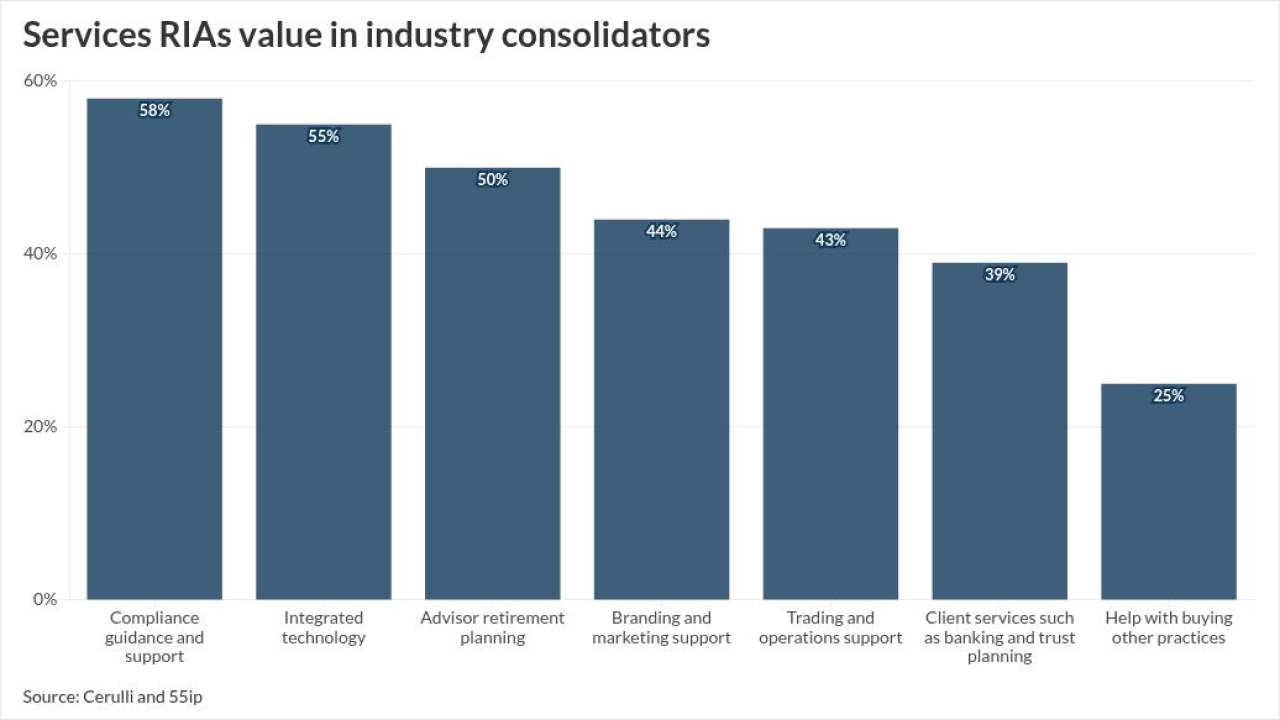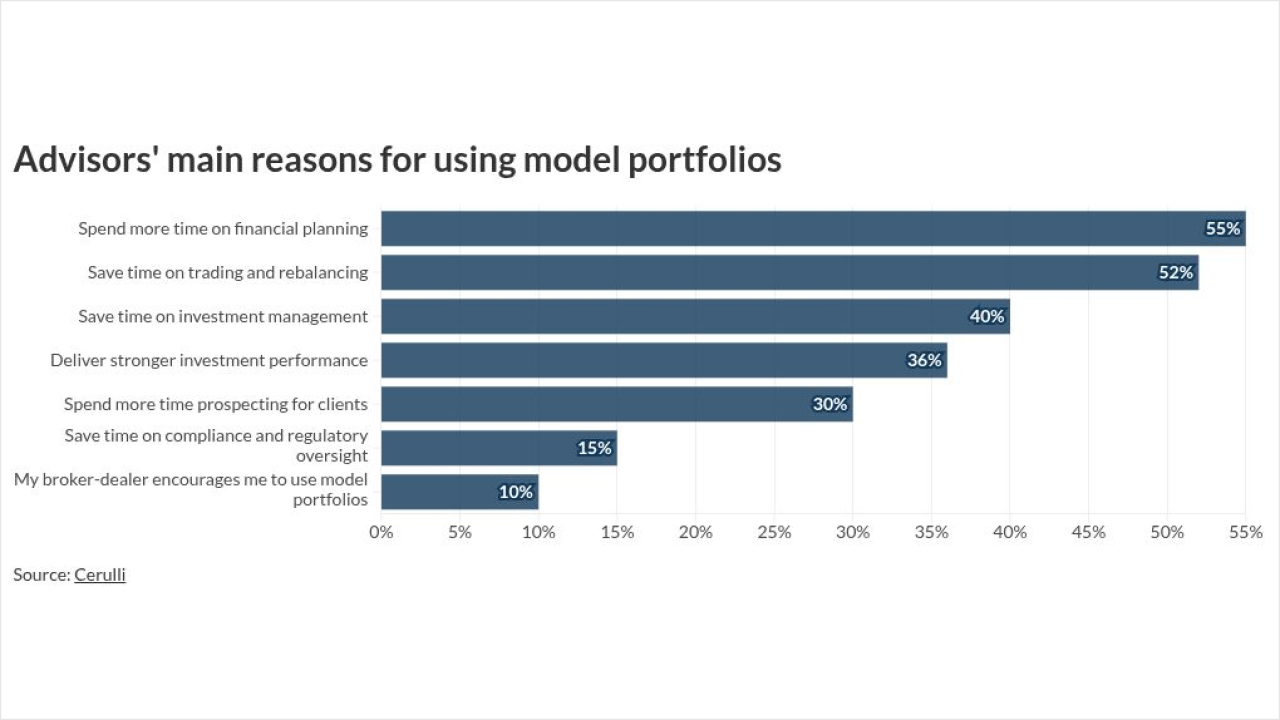With the election over, when members of Congress return to Washington next week, the task awaiting them will be to hammer out what has been an elusive compromise on taxes and expenditures to avert the so-called fiscal cliff, a combination of tax increases and deep spending cuts set to take effect in January should lawmakers fail to act.
The consequences of whatever course Congress and the president take will be significant for financial advisors and their clients, according to Andrew Friedman, principal at the policy-analysis shop Washington Update, who predicts high market volatility and significant movement of funds before the year's end.
"I think we're going to see a lot of money in motion in the next couple months," Friedman said during a conference call with advisors and reporters organized by Sammons Retirement Solutions.
Friedman pointed out that Tuesday's election preserved the status quo in Washington's political dynamics, with Democrats again controlling the White House and Senate, while Republicans held the House of Representatives.
"We've ended right back where started," he said. "One thing is clear: we're going to need consensus between the two parties in order to get any legislation passed," he added, calling the upcoming stretch "the mother of all lame-duck sessions."
It is also clear that neither party wants to see the Bush tax cuts expire in their entirety or watch as $2.1 trillion is indiscriminately cut from the federal budget, a sequestration that lawmakers included as a provision in the deal they reached last year to raise the federal debt ceiling. Economists broadly agree that should both conditions of the fiscal cliff come to pass, the nation would likely plunge back into recession.
The question of the Bush-era tax rates has been a major fault line in the debate, with Republicans championing a wholesale extension, while President Obama and Democrats in Congress have called for allowing the cuts to expire only for the wealthiest Americans. Obama campaigned on that platform of raising taxes on the wealthy, proposing the threshold be set at $250,000 in annual household income.
And while both parties have stressed the need for spending reductions, they have failed reach an agreement -- or even seriously engage in a debate -- on reforming entitlement programs such as Social Security and Medicare. The sequester, which includes $1 trillion in cuts to defense spending, was included in the debt-ceiling agreement as a mechanism to spur Congress to enact a long-term deficit-reduction plan, an area where agreement and compromise have been in short supply.
"It is important to keep in mind that the fiscal cliff is, first and foremost, a failure of our politics. The Congress and the president have not made fiscally responsible choices in the face of overwhelming evidence that these choices will be necessary to avert future economic collapse," Philip Joyce, a professor at the University of Maryland's School of Public Policy, wrote in an email.
"While it seems likely that some way will be found to keep us from falling off the fiscal cliff in January, it will not change the fact that the underlying problem must be solved," Joyce said. "Such a solution will not involve a choice between raising taxes and cutting spending, or between cutting defense spending and reforming entitlements. The magnitude of the problem suggests that ALL options must be on the table and that eventually almost no area of the budget -- either on the revenue side or the spending side -- can remain untouched."
Friedman, too, expects that the parties will be able to reach some sort of a deal, at least in the short term. He anticipates that Republicans will eventually give ground on the tax issue, taking the president's advisors at their word that Obama would veto any deficit plan that does not include higher taxes for the top earners.
But the threshold might move, he said, suggesting that instead of the $250,000 mark the president has proposed, they might find a compromise by allowing taxes to increase only for those earning $1 million or more.
"I think on balance we probably will avoid it," Friedman said. "I think the Republicans will ultimately agree to perhaps raise taxes above a certain income level, maybe $1 million, and keep taxes low on everyone else."
He pointed to comments that House Speaker John Boehner (R-Ohio) made on Wednesday that held the door open to increasing revenues as part of a deficit-reduction plan, though Boehner qualified his remarks, saying, "We're willing to accept new revenue, under the right conditions." He called for an overhaul of the tax code patterned after the 1986 Tax Reform Act that would cut "special-interest loopholes and deductions" to create a "fairer, simpler, cleaner tax code."
But in an interview with ABC News' Diane Sawyer scheduled to air on Thursday, Boehner clarified those comments by reiterating that "raising tax rates is unacceptable," a stance squarely at odds with Obama's call for higher rates for top earners.
If no agreement is reached, the highest ordinary income rate would jump from the current level of 35% to 39.6%. Capital gains income would be taxed at 20%, up from the current level of 15%, while income from qualified dividends would spike from 15% to the rate at which the investor's ordinary income is taxed. Those increases are compounded by a 3.8% surcharge on investment income for top earners that was included in Obama's health-care reform law. That increase will take effect regardless of what Congress does to address the fiscal cliff, and Boehner has indicated that he won't continue to lead efforts to repeal the health-care law.
"Either way, though, affluent Americans are going to be looking at higher taxes next year, and I think Republicans are starting to recognize that," Friedman said.





